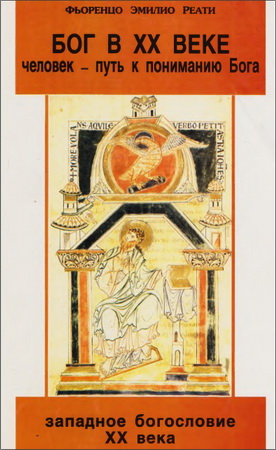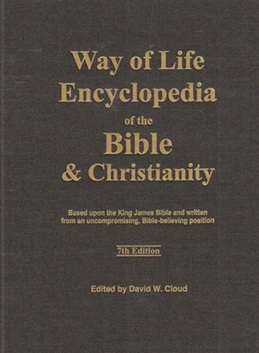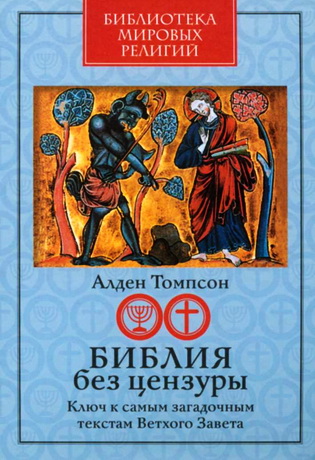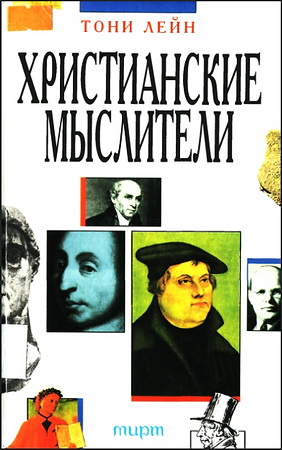
Cloud - Way of Life Encyclopedia of the Bible and Christianity
David W. Cloud - Way of Life Encyclopedia of the Bible and Christianity
Based on the King James Bible and written from an uncompromising, Bible-believing position. - Sixth edition, revised and enlarged, August 2016. – Port Huron, MI: Way of Life Literature, 2016
The material in this volume is given from an unapologetically Bible-believing position. We make no apology for the Word of God, and we refuse to question any of its statements. We also believe we have a pure Bible in the King James translation of the Greek Received and the Hebrew Masoretic texts. In an hour of unbelief and compromise, an hour in which the black and white of truth and error is wisely exchanged for the gray of uncertainty and relativism, it is our desire that the reader not find the slightest hint of doubt in this volume. The Bible says it; that settles it. This is our position. Word studies from the original languages are used to supplement the KJV, not detract from it or bring doubt upon its readings. (Examples are Affliction, Edify, Gehenna, Glory.)
1. Use the Way of Life Encyclopedia to find the meaning of practically any word in the Bible. In addition to the editor’s own extensive doctrinal word studies and the consultation of many other resources, we have liberally included definitions from the famous Webster’s 1828 American Dictionary of the English Language. Noah Webster (1758-1843) was a master lexicographer and he was not strictly secular in his approach to words, as so many of the lexicographers have been. Webster brought a wide knowledge of foreign languages to his work. Ultimately he mastered 26 languages, and he spent a full decade in tracing the origin of English words in these languages-but he was always oriented, first and foremost, to the Bible and to absolute truth. Webster was deeply influenced by the Second Great Awakening which swept through the New England states in America. It so happened that this Awakening was at its zenith in the years during which Webster was preparing his crowning work-a dictionary that was destined to standardize the English language in America and to help unite that country in mind and purpose for the century to come. It is this biblical environment that makes Webster unique for the Bible student. While certainly not infallible and while not specifically written to define Hebrew and Greek Bible terms, it has been observed that Webster's dictionary was "the only [secular] dictionary in the world to 'draw water out of the wells of salvation'-to utilize God's written word as a key to the meaning of words." Consider Webster's definition of convert: "In a theological or moral sense, a change of heart, or dispositions, in which the enmity of the heart to God and his law and the obstinacy of the will are subdued, and are succeeded by supreme love to God and his moral government, and a reformation of life. Conversion is used in Scripture in a way similar to repentance." It is obvious that the man understood spiritual things. We should also note that Webster was not far removed from the actual era of the creation of the King James Bible. He began his lexicographical studies only a little more than 100 years after the translators of the King James Bible had passed off this earthly scene. While Webster's 1828 is still in print, it is not widely available because of its cost and size. We have incorporated the heart of many of Webster's definitions pertaining to Bible words into the Way of Life Encyclopedia for the edification of our readers. Let me hasten to say that we have taken pains to give credit where the distinguished lexicographer has been quoted.
2. Use the Way of Life Encyclopedia to study out-of-use words and difficult phrases from the King James Bible. An exhaustive list of words and phrases in theAuthorized Version which have changed meaning are defined. (Examples are Abomination of Desolation, Abusers of Themselves, Besom, Blood Guiltiness, Charger, Conversation, Cunning Craftiness, Foolish Talking, God Speed, Helpmeet, Itching Ears, Nephew, Puffed Up, Quench, Set On, Set Them At One, Superfluity of Naughtiness, Taken with the Manner, Unawares.)
3. Use the Way of Life Encyclopedia to do topical studies, to study doctrine. Practically every doctrine of the Bible can be researched with this Encyclopedia. A key feature is an extensive system of topical cross references. The student can study the full range of a Bible topic by following the suggested cross references from entry to entry. (For example, consider the cross references listed with the topics Church, Eternal Security, Fear of God, Fornication, God, Heaven, Hell, Holy Spirit, Jesus Christ, Judgment, Prophecy, Salvation, Sin, Soul, Spirit, Trinity.)
4. Use the Way of Life Encyclopedia to study commonly used extra-biblical Christian terms. (Examples are Apostate, Apocrypha, Catechism, Christmas, Cremation, Denomination, Dispensationalism, Easter, Faith Promise, Infallible, Parallelism, Parish, Protestant, Rapture, Reverend, Seminary.)
5. Use the Way of Life Encyclopedia to study various issues relating to morality and practical Christian living. (Examples are Adultery, Capital Punishment, Child Training, Cremation, Dancing, Divorce, Employment, Fornication, Guidance, Home, Kill, Labor, Modesty, Pacifism, Polygamy, Sodomy, Wine.)
6. Use the Way of Life Encyclopedia to study Old Testament types. (Examples are Ark, Atonement Day of, Boaz, Brass Serpent, Cain, Candlestick, Coat, High Priest, Joseph, Laver, Melchizedek , Naaman, Passover, Tabernacle.)
7. Use the Way of Life Encyclopedia to find the meaning of Bible customs. (Examples are agriculture, calendar, military, money, music, weights and measures, etc.)
8. Use the Way of Life Encyclopedia to study Bible Prophecy. The Encyclopedia contains the equivalent of a Bible college course on prophecy. (Examples are Allegorical, Antichrist, Babylon, Covenant, Daniel, Day, Day of the Lord, Double Fulfillment, Ethiopia, Gog, Great Tribulation, Kingdom of God, Judgment, Millennium, Revelation, Second Coming, Seventy Weeks, Time.)
9. Use the Way of Life Encyclopedia to study proper names in the Bible. An extensive list of Bible names is included with definitions and key references. There is a wide variety of opinion among commentators and lexicographers regarding the definition of these Bible names. We believe it was providential that we found the Dictionary of Bible Proper Names in our research for this volume. The editor, Cyrus A. Potts, made diligent search into the meaning of Bible names, and his definitions are the most precise and practical we have seen. In many cases we have incorporated the definitions from this 100-year-old dictionary into our own volume for the edification of our readers. (Examples are Aaron, Benjamin, Cain, Eunice, Gamaliel, Joshua, Lot, Mesopatamia, Zabulon.)
10. Use the Way of Life Encyclopedia to do research into the Christian denominations and movements. Studies of major denominations and movements of Christianity are included. The history, doctrinal position, and present status of many of the major denominations and movements are included. (Examples are Anglican, Assemblies of God, Brethren, Charismatic Movement, Eastern Orthodoxy, Episcopal Church, Evangelical, Fundamentalism, Lutheran, Mennonite, Methodist, Modernism, New Evangelicalism, Presbyterian, United Church of Christ, and World Council of Churches.)
11. Use the Way of Life Encyclopedia to do research into cults and false groups and to examine prominent false doctrines. (Examples are Annihilation, Baptism — Infant, Charismatic Movement, Christ's Deity, Christian Science, Churches of Christ, Ecumenical Movement, Healing, Investigative Judgment, Jehovah's Witnesses, Judaism, Mass, Modernism, Mormonism, Neo-orthodoxy, Pope, Purgatory, Roman Catholic Church, Seventh-day Adventism, Soul Sleep, and Unitarian.)
12. Use the Way of Life Encyclopedia to answer the questionings of false teachers. The Bible says of false teachers, “whose mouths must be stopped” (Tit. 1:11). The editor of the Way of Life Encyclopedia has been dedicated to protecting God's people from error for 35 years. We have not been content to read about the various heresies, but have studied directly from the writings of false teachers that we might be better equipped to answer them. Not only have we dealt with many of the most important cults and erroneous Christian movements and philosophies in this volume, but we have addressed a many of the Bible doctrines that are under attack today. We have ever kept in mind the need for a practical defense of the faith. (Examples are Adam, Allegorical, Beast, Blood, Church, Daniel, Death, Dynamic Equivalency, Eternal Security, Foolish Questions, Gospel, Hope, Inspiration, Investigative Judgment, Jonah, Justification, Moses, Preservation, Red Sea, Resurrection, Reverend, Soul, Spirit, Sunday, Tares, Timothy, Tongues Speaking, and Whale.)
13. Use the Way of Life Encyclopedia to study church polity. The Encyclopedia is a practical manual for church leaders and missionaries. (Examples are Apostle, Baptism — Immersion, Baptism — Infant, Church Discipline, Deacon, Evangelism, Footwashing, Lord's Supper, Ordain, and Pastor.)
14. Use the Way of Life Encyclopedia to study church history. Many entries relating to church history are included. (Examples are Barbe, Catabaptist, Golden Cup, Inquisition, Manichean, Mother of Harlots, Paulicians, Pedobaptism, and the Roman Catholic Church.)
15. Use the Way of Life Encyclopedia to do research on the subject of Bible versions. This Encyclopedia is designed to be a virtual handbook on Bible Versions. (See, for example, the articles on Bible Versions, Erasmus, Masoretic Text, Preservation, Pseudepigrapha, Received Text.)
16. Use the Way of Life Encyclopedia to be encouraged and strengthened spiritually. Word, topical, and doctrinal studies are thorough and practical, even devotional, and are designed to be used by preachers and teachers, as well as to offer a Bible-institute level education to the average Christian. While we have attempted to give accurate Bible facts, precise definitions, and a wide breadth of information, we have also attempted to present a volume that is practical and edifying. As one church historian said of his book: “I have aimed at more than mere history. It has been my desire to connect with it Christ and His Word, so that the reader may receive the truth and blessing, through grace, to his soul.” This has been our aim as well. (Examples are Boast, Concord, Fasting, Fear of God, Glory, Grace, Hope, Joy, Justification, Propitiation, Sanctification, Vanity, and Zeal.)
17. Use the Way of Life Encyclopedia for preaching and teaching. The doctrinal material in this Encyclopedia is presented in a practical manner with clear, simple outlines that can be used for teaching and preaching. They can be used in Sunday Schools, Bible colleges, home schooling, prisons and jails, etc. (Examples are Angels, Bible, Church, Cremation, Doctrine, Eternal Security, Evolution, Heaven, Hell, Holy Spirit, Jesus Christ, Prophecy, and Resurrection.)
* * *
EARTHQUAKE
A shaking of the earth. There are several earthquakes recorded in the Bible (1 Ki. 19:11; 2 Ch. 26:16; Is. 29:6; Am. 1:1; Ze. 14:5; Mt. 27:45, 51-54; 28:2; Is. 29:6). Jesus foretold that earthquakes would increase as the time of His return approaches (Mt. 24:7). The prophecies of Revelation describe the great earthquakes of the very last days (Re. 6:12; 8:5; 11:13, 19; 16:18). About 2.5 million people have died in earthquakes since 1900; more than 830,000 died between 2001 and 2015 (earthquake.usgs.gov).
Worst Earthquakes since 1900
- Jan. 12, 2010, Haiti 316,000
- Dec. 26, 2004, Sumatra 227,000
- July 28, 1976, Tangshan, China, 242,000
- May 22, 1927, Nan-shan, China, 200,000
- Sept. 1, 1923, Tokyo, Japan, 140,000
- Dec. 16, 1920, Kansu, China, 100,000
- May 12, 2008, Sichuan, China 87,000
- Oct. 8, 2005, Pakistan 86,000
- Dec. 28, 1908, Messina, Italy, 83,000
- Dec. 26, 1932, Kansu, China, 70,000
- May 31, 1970, Northern Peru 70,000
- Feb. 4, 1976, Guatemala, 38,000
- Dec. 26, 1939, Erzincan, Turkey, 37,000
- Dec. 26, 2003, Iran 31,000
- May 31, 1935, Quetta, India, 30,000
- Jan. 24, 1939, Chillan, Chile, 30,000
- Jan. 13, 1915, Avezzano, Italy, 29,980
- Sept. 17, 1978, Tabas, eastern Iran, 25,000
- Dec. 15, 1988, Armenia, Soviet Union, at least 23,000
- Feb. 4, 1976, Guatemala, Honduras 22,934
- Mar. 11, 2011, Japan 21,000
- Aug. 16, 1906, Valparaiso, Chile, 20,000
- Jan. 26, 2001, India 20,000
- May 10, 2004, China 20,000
- Feb. 29, 1960, Agadir, Morocco, 15,000
- Sept. 1, 1962, Northwestern Iran, 12,230
- Aug. 31, 1968, Northeastern Iran, 12,000
- Jan. 15, 1934, Bihar-Nepal 10,700
- Dec. 23, 1972, Nicaragua, 10,000
- Apr. 25, 2015, Nepal 10,000
- Aug. 17, 1976, Mindanao, Philippines, 8,000
- July 28, 1981, Kerman province, Iran, 8,000
- Sept. 19, 1985, Mexico City, 7,000
- Aug. 5, 1949, Pelileo, Ecuador, 6,000
- Nov. 24, 1976, Van, Eastern Turkey, 6,000
- Dec. 28, 1974, Pakistan (9 towns), 5,200
- June 28, 1948, Fukui, Japan, 5,131
- April 10, 1972, Southern Iran, 5,057
- May 21-30, 1960, Southern Chile, 5,000
- Dec. 22, 1943, Ladik, Central Turkey, 4,000
- Feb. 1, 1944, Bolu-Gerede, Northwestern Turkey, 4,000
- Dec. 30, 1942, Niksar-Erbag, Northern Turkey, 3,000
- June 11, 1981, Kerman province, Iran, estimated 3,000.
- Mar. 2, 1933, Japan, 2,990
- Aug. 18, 1966, Varto-Hiniz, Eastern Turkey, 2,964
- Nov. 23, 1980, Southern Italy 2,735.
- July 2, 1957, Northern Iran, 2,500
- Sept. 6, 1975, Lice, Eastern Turkey, 2,312
- Apr. 13, 2010, China 2,200
- May 21, 2003, Algeria 2,200
- Dec. 21, 1946, Honshu, Japan, 2,000
- June 10-17, 1956, Northern Afghanistan, 2,000
- Dec. 13, 1957, Western Iran, 2,000
- August 1912, Gallipoli (Dardanelles), 1,950
- April 19, 1903, Malazgirt, Eastern Turkey, 1,700
- Mar. 28, 2005, Sumatra 1,300
- Sep. 30, 2009, Sumatra 1,100
[See Prophecy, Revelation.]





Комментарии
Пока нет комментариев. Будьте первым!